Chatbase Review: Build AI Agent for Customer Support
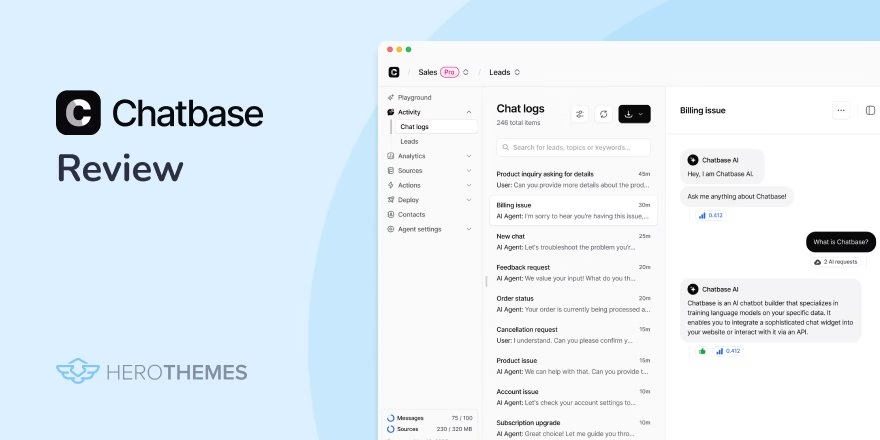
Chatbase—an AI chatbot builder that promises to turn your existing content into a friendly 24/7 support agent.
I’ve tested hundreds of AI chatbots that make big promises but fail miserably. Is Chatbase AI any different?
In this 2026 Chatbase review, I’ll share what Chatbase does well, where it struggles, and whether it’s worth your time and money.
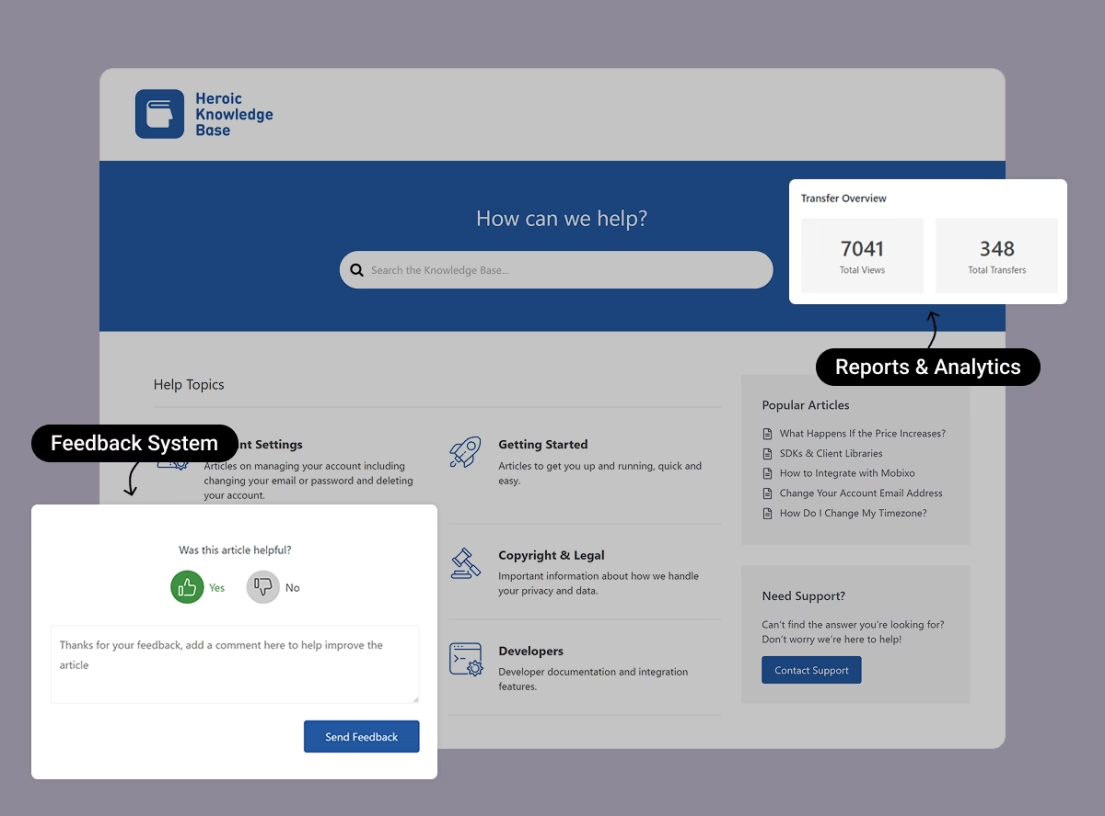
Heroic Knowledge Base + AI Assistant
Create a beautifully designed, searchable, smart knowledge base in minutes.
In This Guide
What is Chatbase and Who Is It For?
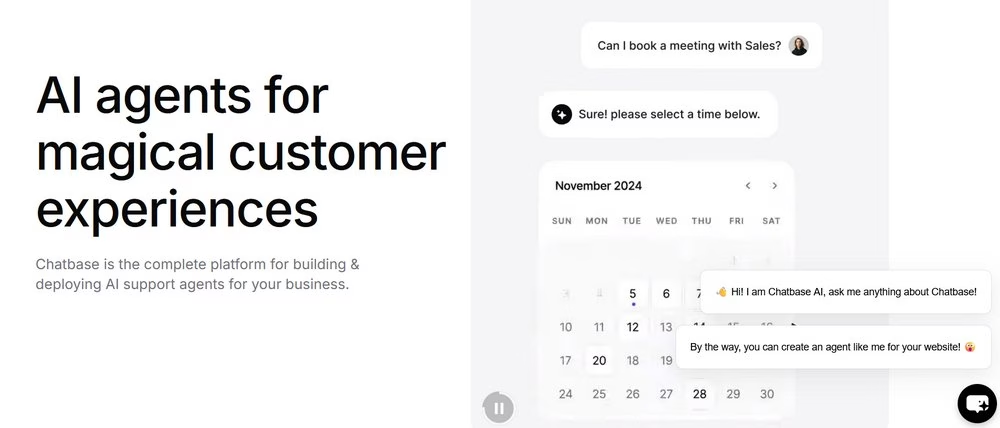
Chatbase is an AI chatbot builder that lets you train a chatbot on your own content. Whether that’s your website, knowledge base, PDFs, or other documents.
More like creating a custom ChatGPT for your business that learns about your product from your policies, documents, or FAQs, allowing it to answer customer queries more effectively.
A perfect sounding solution for:
- SaaS or eCommerce business who are tired of answering the same repetitive questions over and over.
- Offering 24/7 support globally in multiple languages
- Make customer search for information easier
- Have lots of content that customers don’t read
- Automate hundreds of eCommerce related tasks
- Support teams that heavily invested in help center articles, manuals, or blog posts.
Chatbase was launched in 2023 and has quickly gained popularity. It now serves over 9,000 businesses worldwide.
Chatbase Quick Review (Pros and Cons)
No solution is perfect, and after using Chatbase for a couple of hours, here’s my honest take on where it shines and where it falls short:
✅ Pros:
- Very fast setup and learning curve
- You can feed your existing content to AI training
- Supports many data sources (PDFs, websites, Notion, etc.)
- Accurate, relevant answers
- Highly customizable.
- Multi-channel and integrations
- Powerful AI Actions for automation
- Analytics and insights
- Scalable and enterprise-ready (to an extent)
- Multi-lingual support
❌ Cons:
- Free plan is very limited
- Pricing gets steep for higher usage.
- Additional fees for essentials
- Customer support (the company’s) is hit-or-miss
- Occasional technical hiccups
- Less suitable for complex multi-step workflows
For many use cases, I believe that Chatbase’s pros outweigh its cons. The main things to watch out for are cost and ensuring that it fits your support workflow.
Chatbase Key Features Review
Chatbase positions itself as a complete platform for AI support agents.
From my hands-on experience, here are the standout features that make it tick:
1. Training AI on Your Content
One of Chatbase’s superpowers is how easily it learns from your existing knowledge.
You can feed Chatbase AI with multiple types of documents: upload PDFs, Word docs or text files, connect your Notion workspace, paste raw text, add structured Q&A pairs, or simply point it to your website/FAQ URL (The platform will crawl your site and index all the pages for information).
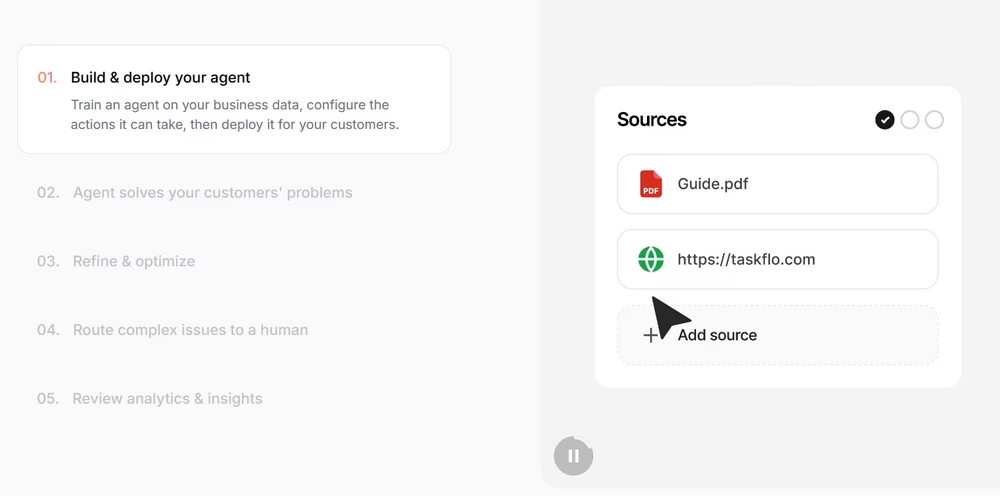
This will allow chatbot to give proper answers—no hallucinations, just pulling facts from the actual content.
2. Omnichannel Support (Web, Chat, Slack, and More)
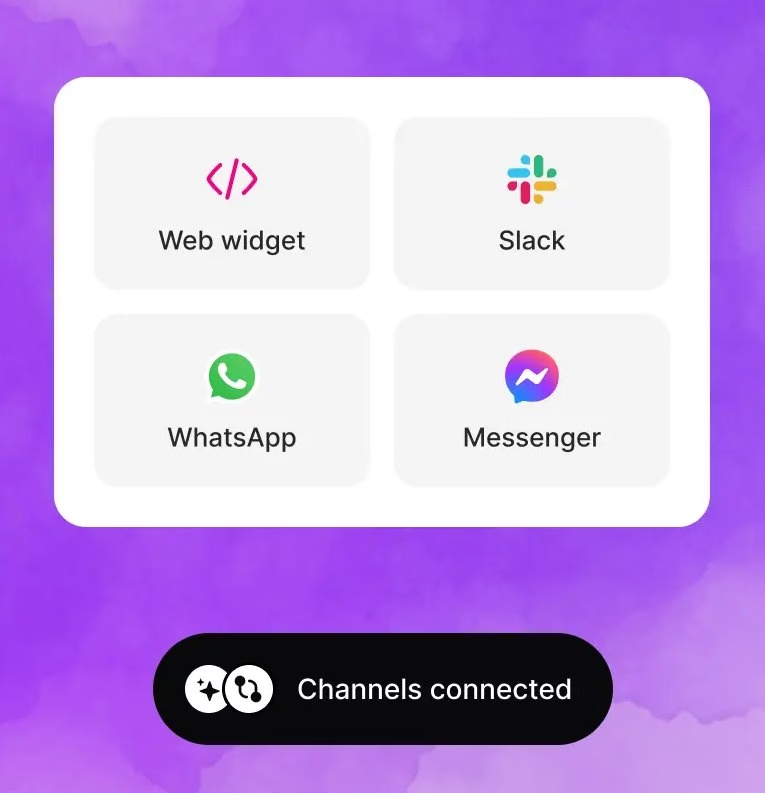
Chatbase makes it easy to deploy it across channels.
Chatbase provides a little snippet of code, which you can embed into your website to add a familiar chat icon in the corner of your website.
The Chatbase chat widget is also customizable to perfectly blend it with your branding.
With websites, Chatbase is built to work with many other popular platforms such as Slack, WhatsApp, Instagram, Messenger, Zendesk, Zapier and so on.
3. Custom Actions and Workflow Automation
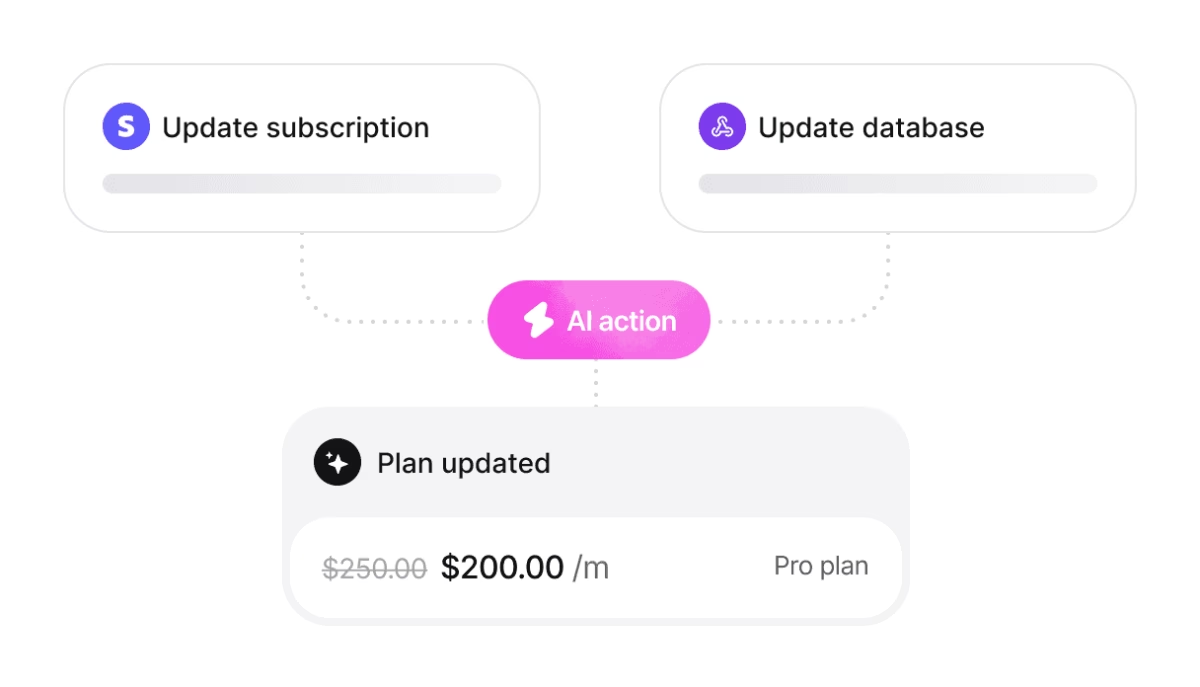
Here’s where Chatbase steps beyond a typical FAQ bot.
It doesn’t just regurgitate info; it can perform actions through what they call AI Actions. You can configure custom actions such as looking up data or triggering operations in other apps.
For example, connect an order management API so the bot can retrieve a customer’s order status, or integrate with your CRM to update an address.
There are plenty of pre-built action templates, so it’s very easy to implement.
Not every chatbot platform offers this level of action-taking. Many are limited to Q&A. Chatbase’s agent is more of a concierge that can fetch data and complete tasks, which can streamline workflows.
Explore:
Customer Service Automation: What It Is, Examples and How To
Service Desk Automation: 9 Ideas to Streamline IT Support
4. Analytics and Continuous Improvement
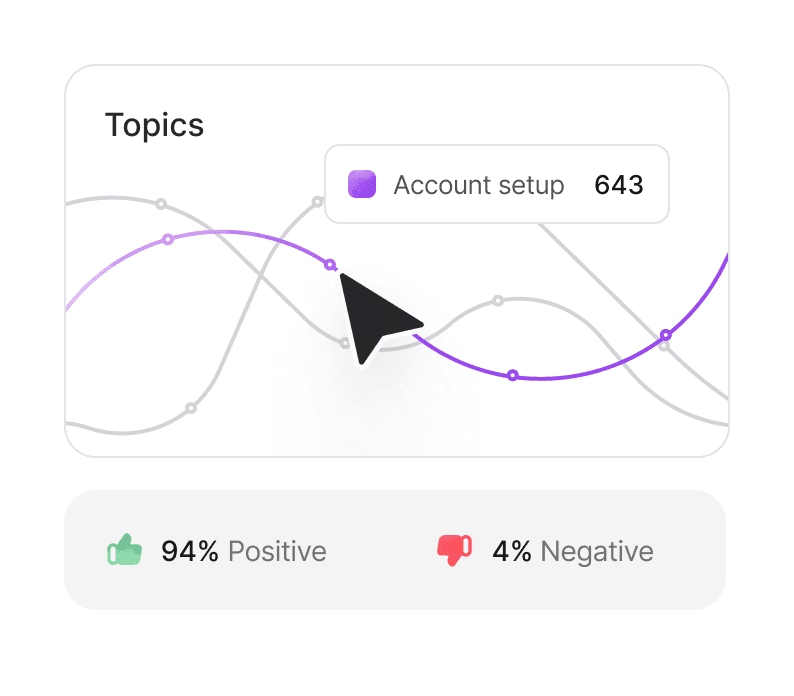
Chatbase offers valuable insights to improve chatbot’s performance.
The Analytics dashboard shows metrics like total conversations, total messages, user feedback (thumbs up/down on answers), and usage over time.
It even breaks down where users are chatting from, which pages the widget is used on, and logs the full chat transcripts.
Reading through these is gold for understanding customer needs, and where your chatbot is failing.
5. Customization and Brand Voice
You customize the Chatbase chatbot’s appearance and behavior.
I could change the widget color to match our brand theme, set the chatbot’s name and avatar, and tweak its greeting message to be on-brand friendly.
You can also remove the small “Powered by Chatbase” branding on the widget with a paid add-on. By default, even paid plans include the Chatbase branding, which is not a good thing to have.
Chatbase supports multiple languages automatically, and it claims to handle over 80+ languages with automatic language detection and translation.
I tried a few non-English queries (French and Spanish) and indeed got coherent answers in those languages.

Chatbase Ease of Use Review
You don’t need to be technical to use Chatbase. Setting it up was honestly easier than expected.
I went and signed up with a Google account and created a new “AI Agent” which is basically the chatbot instance.
- Training data: You can simply paste your website URL and hit “Crawl”. Chatbase then fetches all the publicly linked pages.
Note: You can also upload your data in various formats, such as documents and PDF files. - Basic settings: Plenty of options, such as naming the bot, setting the primary language, and welcome message.
- Playground: You can chat with your bot to see how it performs before deploying. I spent a good half-hour firing various questions. Impressively, it answered most exactly right, citing from our docs.
- Embed on site: Chatbase provides a snippet of JavaScript to embed the chatbot on your website.
Hardly in 10-15 minutes I got Chatbase up and running. No coding (aside from copy-pasting the snippet) and complex config.
Of course, there are a few rough edges. For example, some pages took a few seconds to load, or required refreshing to show updates, such as after new content was added. But, nothing was truly broken.
Overall, the setup experience was positive.
Chatbase Pricing Review
Chatbase offers a tiered subscription model (with an enterprise option on top).
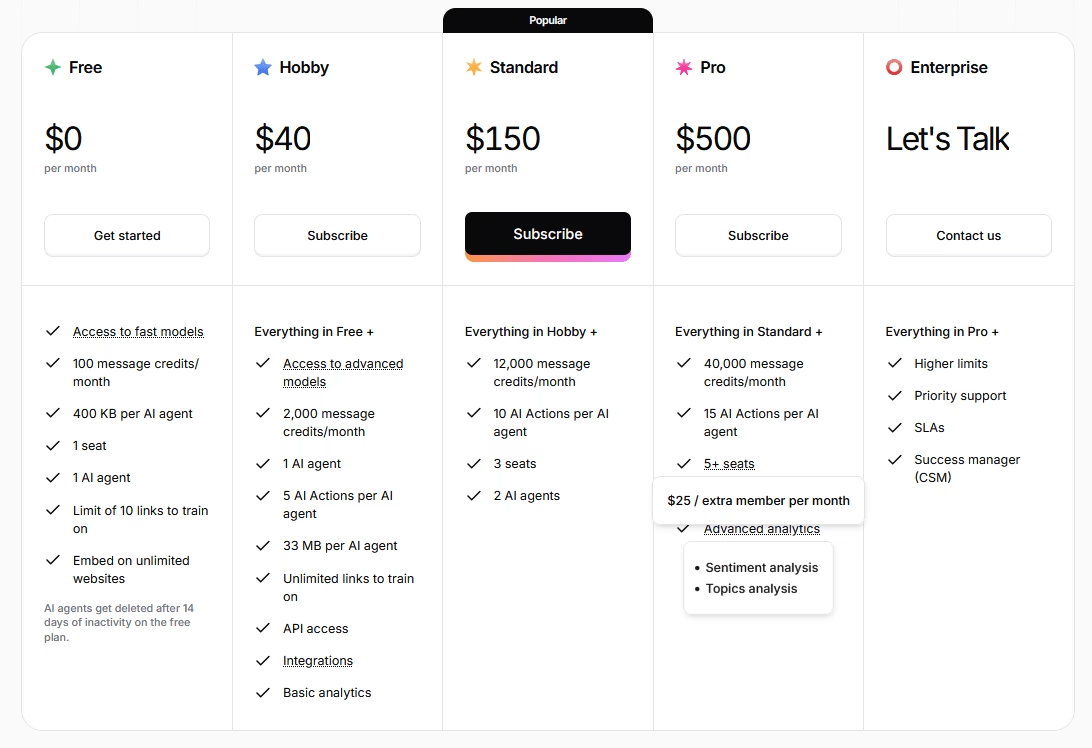
- Free, $0
- Hobby, $40/month.
- Standard, $150/month
- Pro, $500/month
- Enterprise – custom $
In addition to base plans, remember the Add-Ons:
- Extra message credits: $12 per +1000 credits (monthly).
- Extra bots: $7 per month for each additional AI agent.
- Remove “Powered by Chatbase” Branding: $39 per month. This is the white label fee.
- Custom Domain: $59 per month. This lets you host the chatbot widget script on your own subdomain.
- Multiple team members
Chatbase offers a free plan, which in my opinion is only good enough for testing the product, and compared to some alternatives, Chatbase’s pricing is on the higher side. Especially when you add things like branding removal.
Is it worth it? If you have a lot of repetitive inquiries that the AI can handle, the time (and salary) saved might justify the cost. Chatbase’s pricing seems aimed at businesses that want plug-and-play convenience.
However, small businesses should carefully gauge volume. If you only get, say, 50 support queries a month, a $150 plan might not be worthwhile – you could answer those manually.
How Chatbase Compares to Alternatives
1. Heroic Knowledge Base + AI Assistant (WordPress plugin)

The Heroic Knowledge Base WordPress plugin with AI assistant feature could be a convenient choice for many small businesses.
It similarly uses ChatGPT on your documentation to answer questions, directly on your site.
The big difference is control and cost structure. Heroic’s solution runs through your own OpenAI API key (you pay OpenAI usage) and stores data in your environment (with Pinecone for vectors).
2. SiteGPT
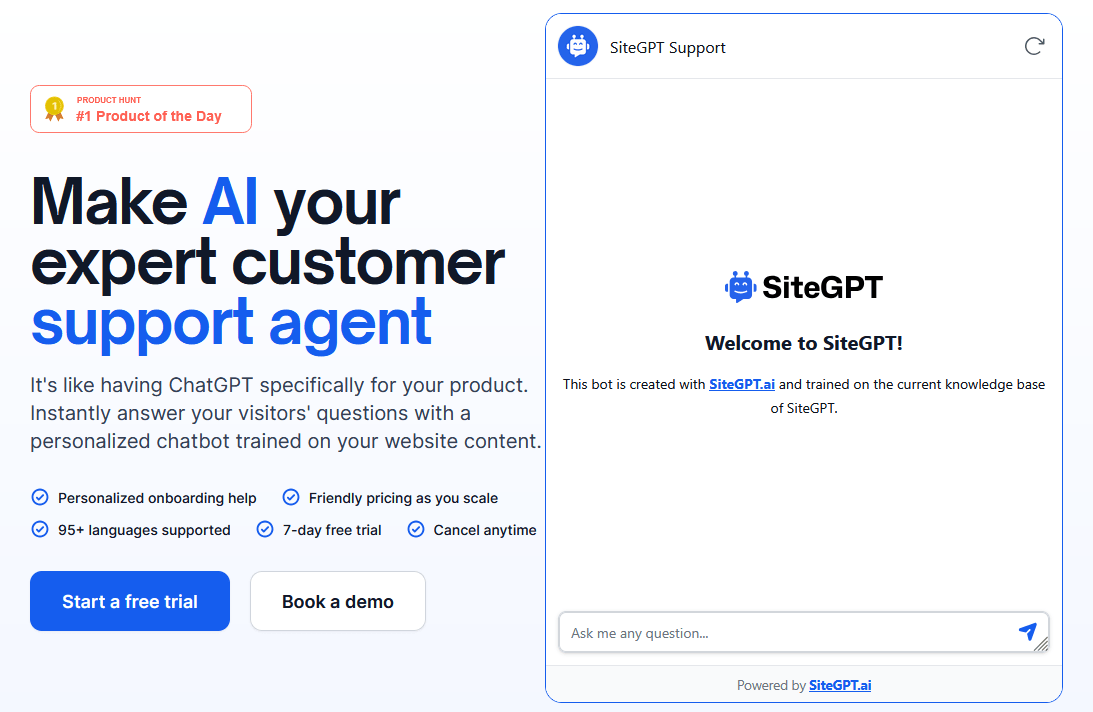
This is a close alternative to Chatbase that also lets you create a chatbot from your website content, with a similar concept (crawl site, embed widget).
Generally, Chatbase has a richer feature set (especially with actions and integrations), whereas SiteGPT is a bit simpler and potentially cheaper.
But for customer support use-cases, Chatbase’s advanced features give it an edge. Like multi-channel and API actions aren’t in most simple site chatbot tools.
Chatbase occupies a sweet spot for many: more robust than simple FAQ bot builders, but more accessible than heavy-duty enterprise AI platforms.
Final Verdict
I’m impressed by Chatbase’s offerings and how well they deliver.
Chatbase makes advanced AI customer support accessible to businesses of all sizes.
It’s like having an expert on call who has read everything about your product and can instantly help your users. To me, that’s a huge win.
We’re entering an era where customers expect instant answers, and tools like Chatbase are how we meet that expectation without burning out our human teams.
Keep your knowledge base rich and your AI agent well-trained, and tools like Chatbase will do wonders.
Further Reading
AI in Customer Service: The Ultimate Guide for Support Teams
Best eCommerce Chatbots: 9 Free and Paid Options
11 Best WordPress AI Chatbot Plugins
Top 10 Companies Using AI for Customer Service (Success Stories)
12 Best AI Virtual Assistants for Small Businesses
Missive Review: A Worthy Shared Inbox for Small Businesses




